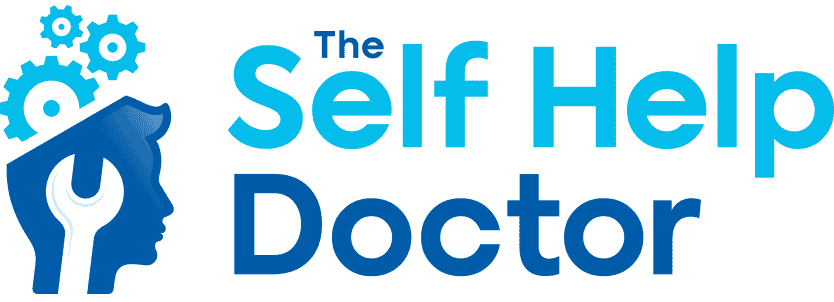Understanding Anger: When Threatening Interpretations Take Over

Understanding Anger: When Threatening Interpretations Take Over
You might not realize it, but your anger could be rooted in how you interpret everyday situations. Imagine feeling slighted by a friend or misunderstood at work, and suddenly, your emotions spiral out of control. This is where threatening interpretations take over, fueling anger issues. But there’s hope. By understanding these emotional triggers and using CBT for anger, you can regain control. Ready to start managing anger effectively? You can also read about anger on Psychology Today.
The Roots of Anger Issues

Understanding the roots of anger can illuminate why certain situations trigger intense emotions. Let’s delve into the core reasons behind these anger issues.
Interpreting Situations as Threats
Many individuals find themselves trapped in a cycle of anger due to misinterpretations. Everyday situations can become perceived threats, leading to an emotional response that feels overwhelming. When your mind constantly interprets benign or uncomfortable actions as attacks, it can ignite anger. This is often unconscious, making it difficult to recognize and address.
Consider a scenario at work where a colleague questions your decision. If this seems like a personal assault rather than constructive feedback, anger may flare up. This response is not about the colleague’s words but your interpretation of them. Recognizing these patterns is crucial in managing how you react emotionally.
The key to breaking this cycle is awareness. Start by observing which situations trigger your anger. Are there common themes? By becoming mindful of these interpretations, you can begin to change them.
Emotional Triggers and Their Impact
Emotional triggers are stimuli that provoke intense emotional reactions. When anger is the response, identifying these triggers is vital. They often stem from past experiences or unresolved issues, resurfacing in current situations.
Imagine a past experience where you felt powerless. A similar situation today might ignite anger, though the present context is different. This is because the past wound influences current perceptions, creating a heightened emotional response to perceived threats.
To manage these triggers, start by journaling your emotions. Note when you feel anger and what preceded it. Over time, patterns will emerge, revealing specific triggers. Awareness is the first step toward controlling emotional reactions, allowing you to respond rather than react.
CBT for Anger Management

Cognitive Behavioral Therapy (CBT) offers practical strategies for managing anger. By understanding and applying CBT principles, individuals can alter the way they interpret and respond to situations.
Understanding Cognitive Behavioral Therapy
Cognitive Behavioral Therapy is a well-researched method that addresses the relationship between thoughts, feelings, and behaviors. It posits that changing dysfunctional thought patterns can alter emotional responses, including anger.
CBT involves identifying negative thoughts and replacing them with balanced alternatives. This process helps in reframing how situations are perceived, reducing anger’s intensity. For instance, instead of thinking “This is unfair,” CBT encourages “This is challenging, but I can handle it.”
Sessions with a therapist or self-help courses can facilitate this process. By practicing new thought patterns, individuals gradually shift their emotional responses. This empowers them to manage anger effectively, fostering healthier interactions and emotional well-being.
Practical CBT Strategies for Anger
Applying CBT strategies involves a few key steps that can help manage anger effectively:
-
Identify Triggers: Keep a journal to track situations that provoke anger. Note what you were thinking and feeling at the time.
-
Challenge Negative Thoughts: When anger arises, ask yourself if your interpretation of the situation is accurate. Could there be another explanation?
-
Practice Relaxation Techniques: Deep breathing or meditation can reduce physical tension associated with anger.
-
Develop Problem-Solving Skills: Focus on finding solutions rather than dwelling on the problem. This proactive approach reduces feelings of helplessness.
-
Seek Support: Consider joining a support group or online community to share experiences and gain insights from others.
These strategies, combined with consistent practice, can transform how you handle anger, leading to more balanced emotional responses.
Taking Control of Your Emotions

Taking control of your emotions involves consistent practice and the right resources. Self-help courses can be a pivotal part of this journey.
Self-Help Course Benefits
A self-help course can provide structure and guidance as you work on managing anger. These courses often include practical exercises, video tutorials, and workbooks, all designed to support personal growth.
Engaging in a self-help course offers several advantages:
-
Flexibility: Learn and practice at your own pace, without the pressure of scheduled sessions.
-
Affordability: Online courses are often more cost-effective than traditional therapy.
-
Accessibility: Materials are available at any time, making it easy to revisit concepts and strategies as needed.
-
Community Support: Many courses offer forums or discussion groups for sharing experiences and advice.
By committing to a self-help course, you empower yourself with the tools needed to manage anger effectively.
Start Managing Anger Today
Managing anger starts with a commitment to change. Here are a few steps you can take today:
-
Enroll in a self-help course: Gain access to structured materials and exercises designed to help manage anger.
-
Practice daily mindfulness: Incorporate meditation or breathing exercises into your routine.
-
Set realistic goals: Break down your anger management objectives into achievable steps.
-
Seek feedback: Talk to friends or family about your progress and ask for their support.
Exploring our free mini-course is a great way to begin. It offers explanations and insights grounded in CBT to help you take charge of your emotions. Start managing your anger today: Self Help Mini-Course.




